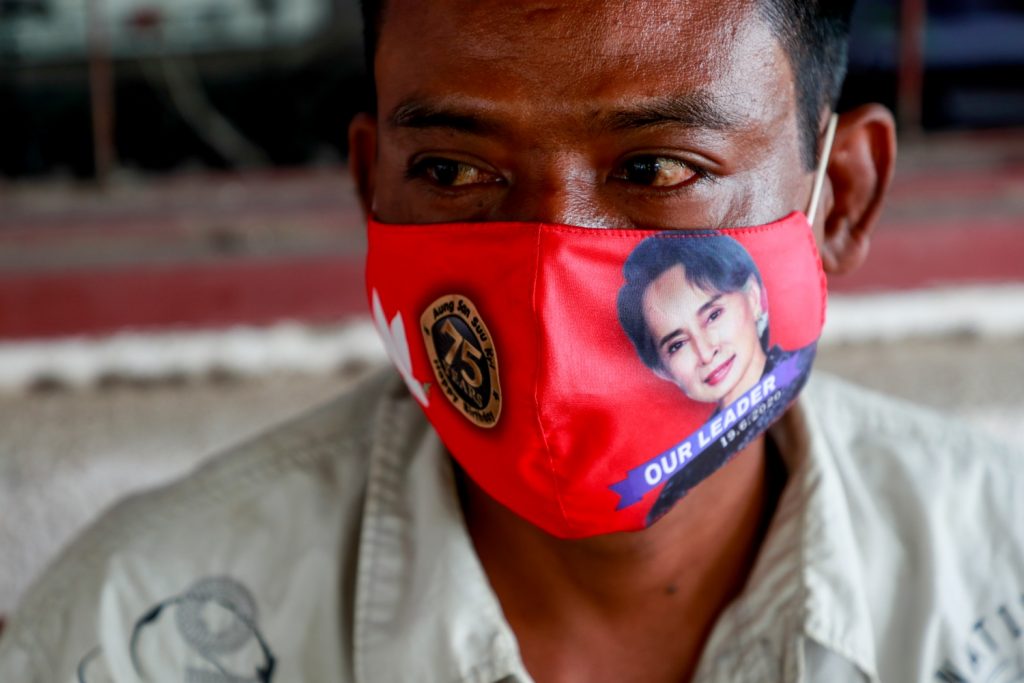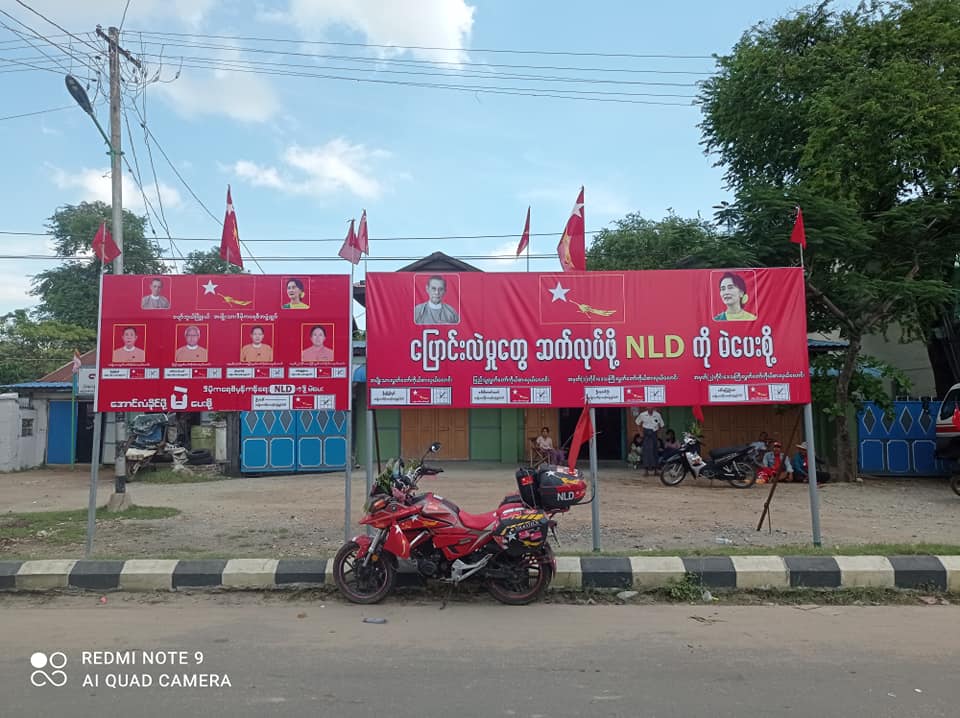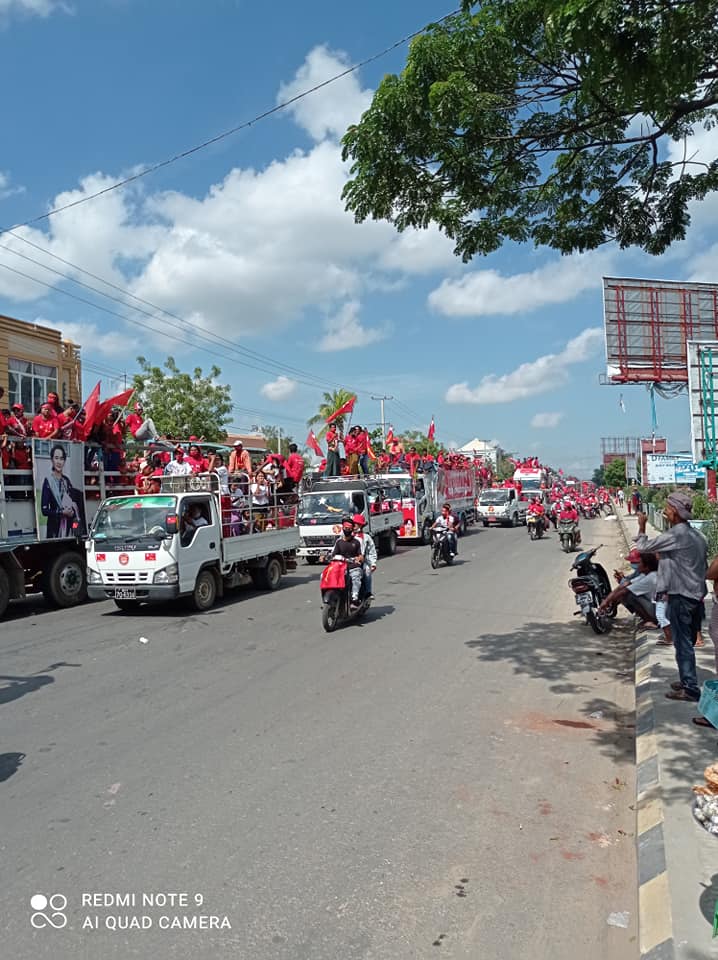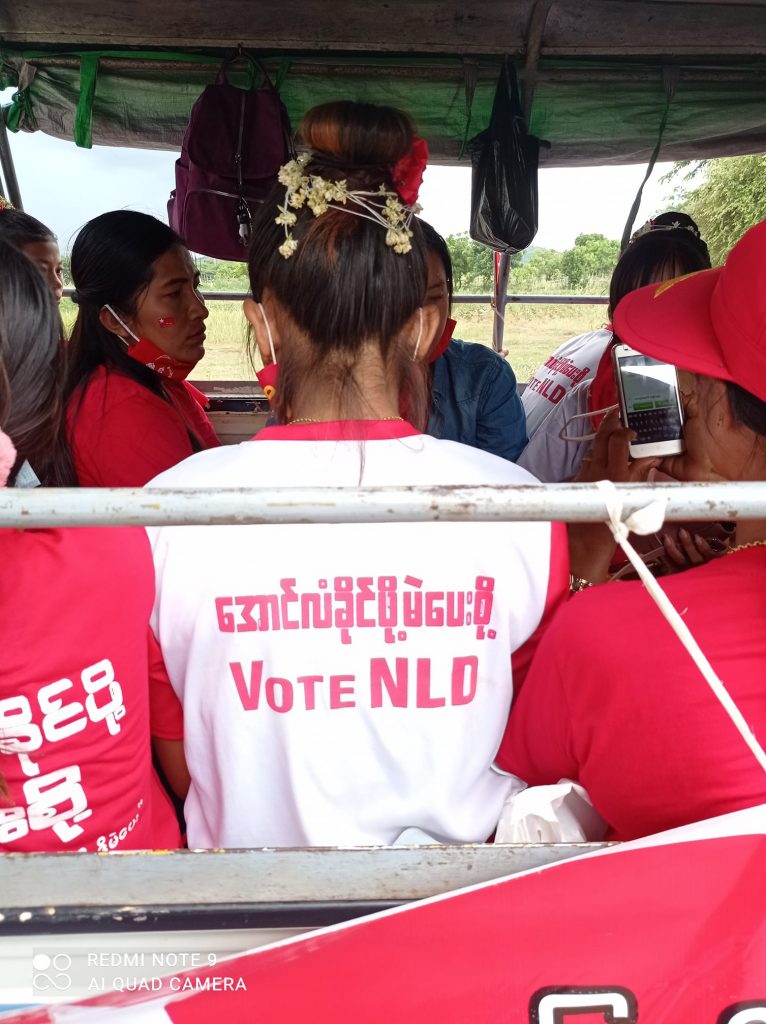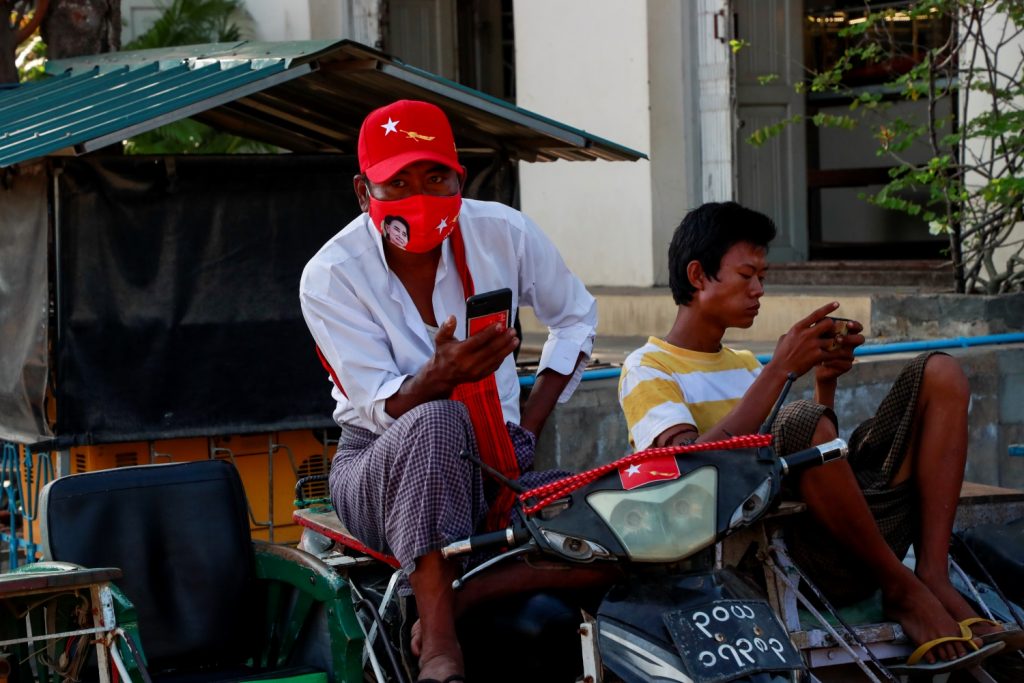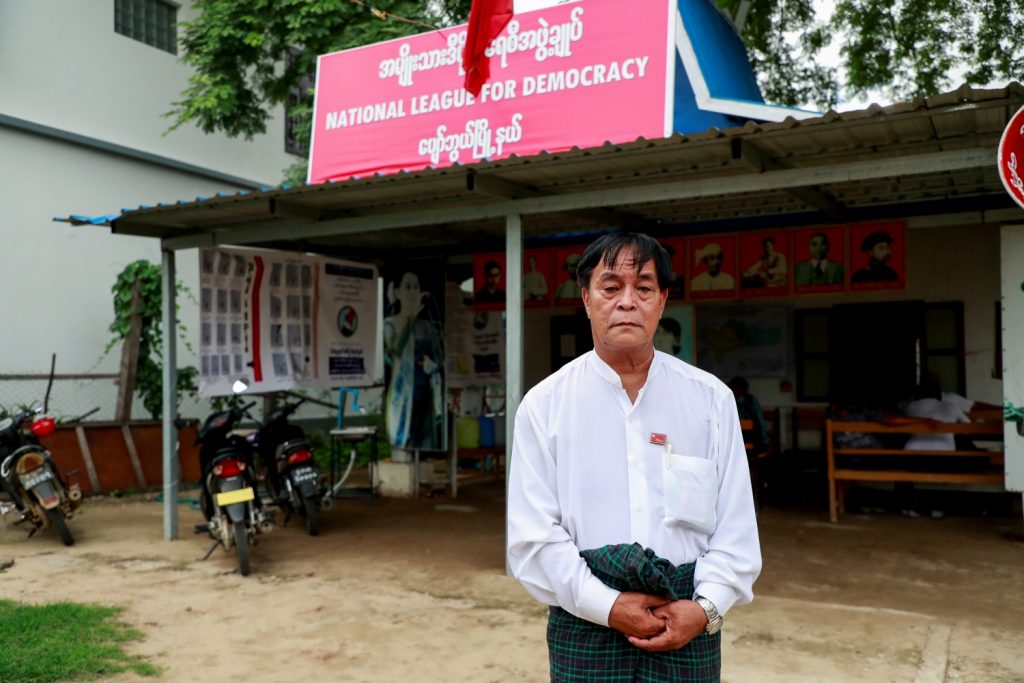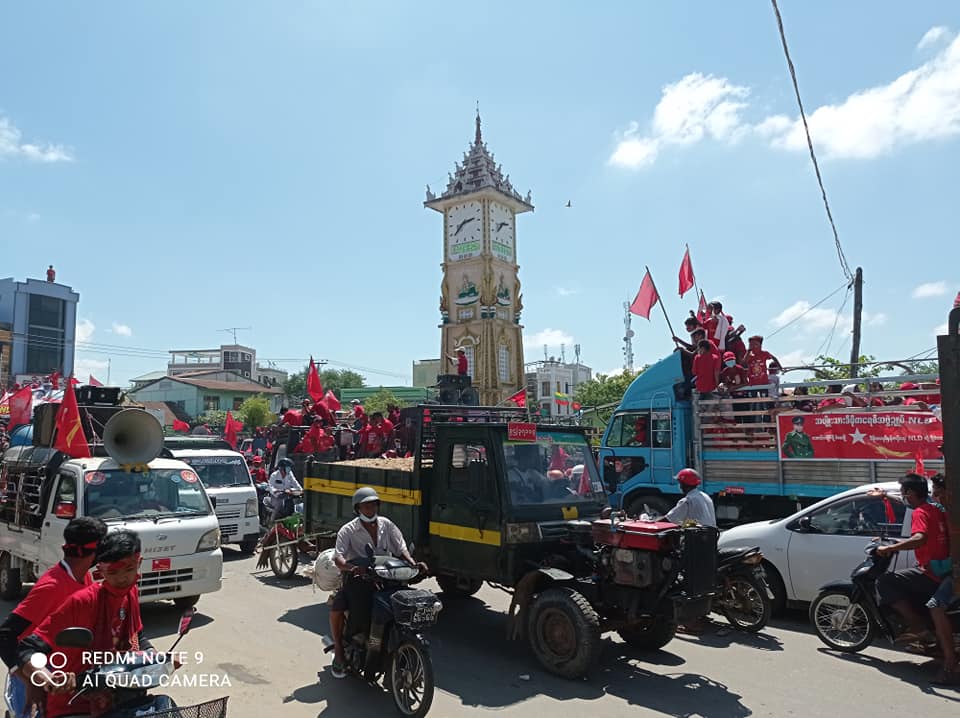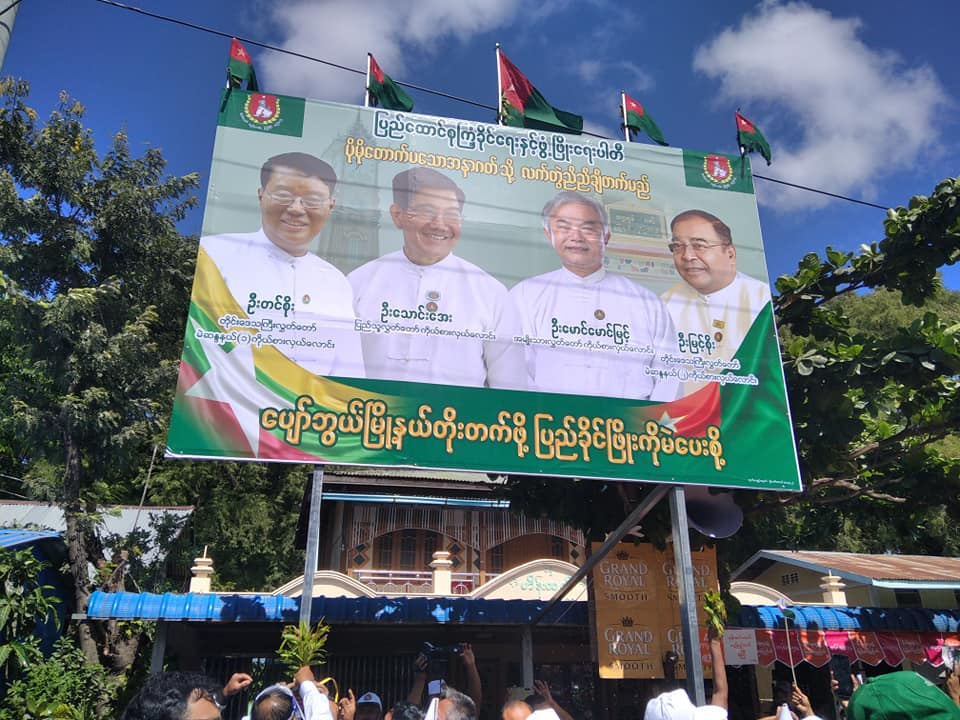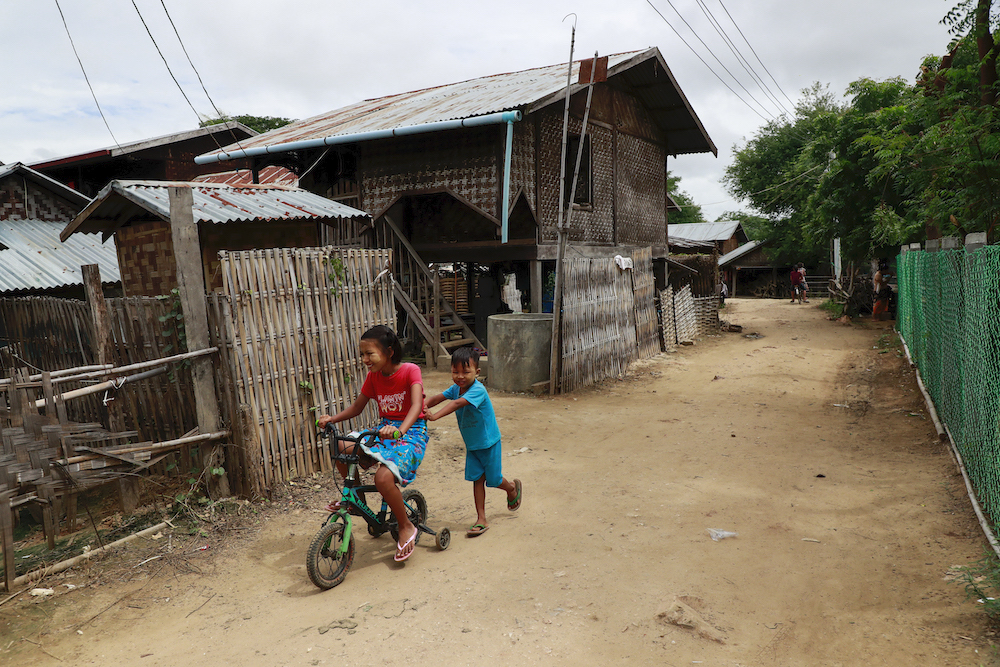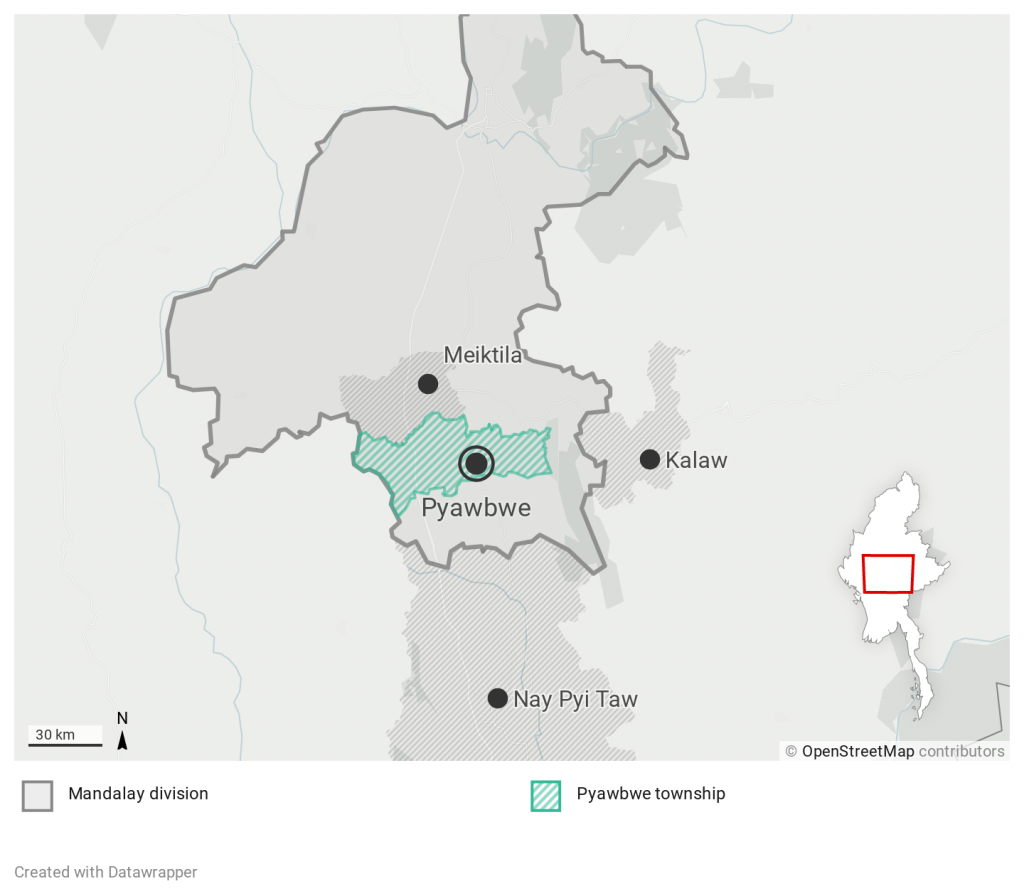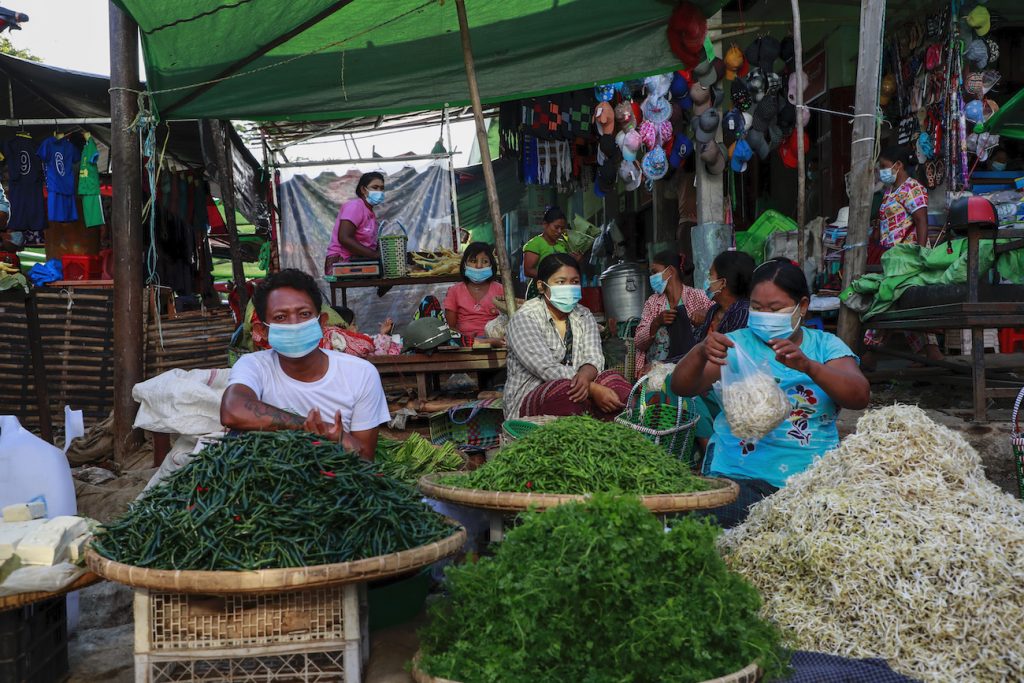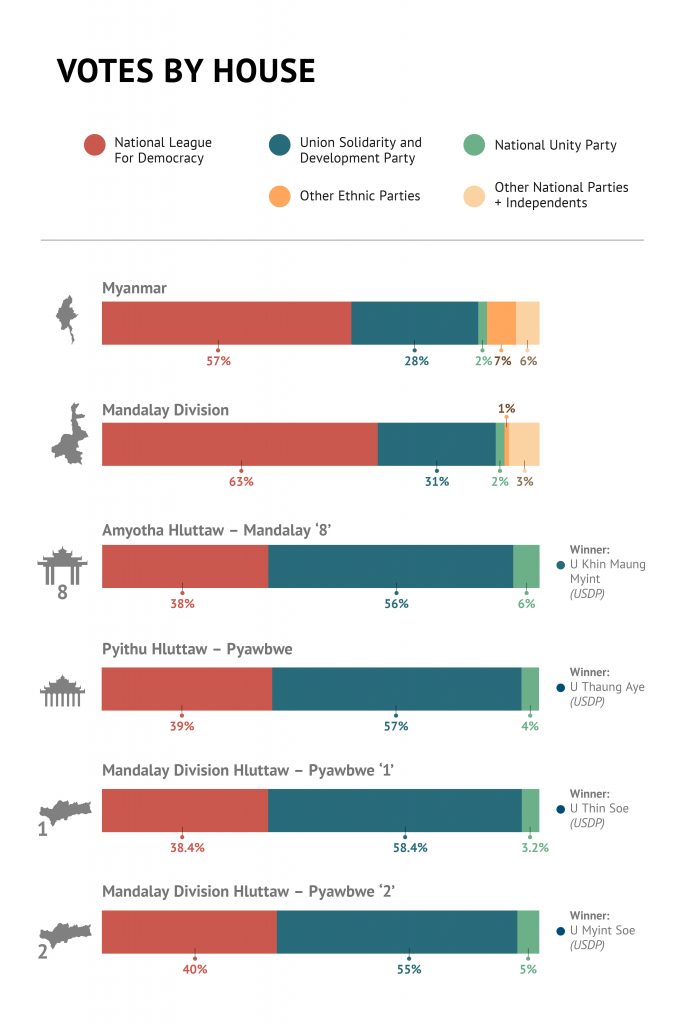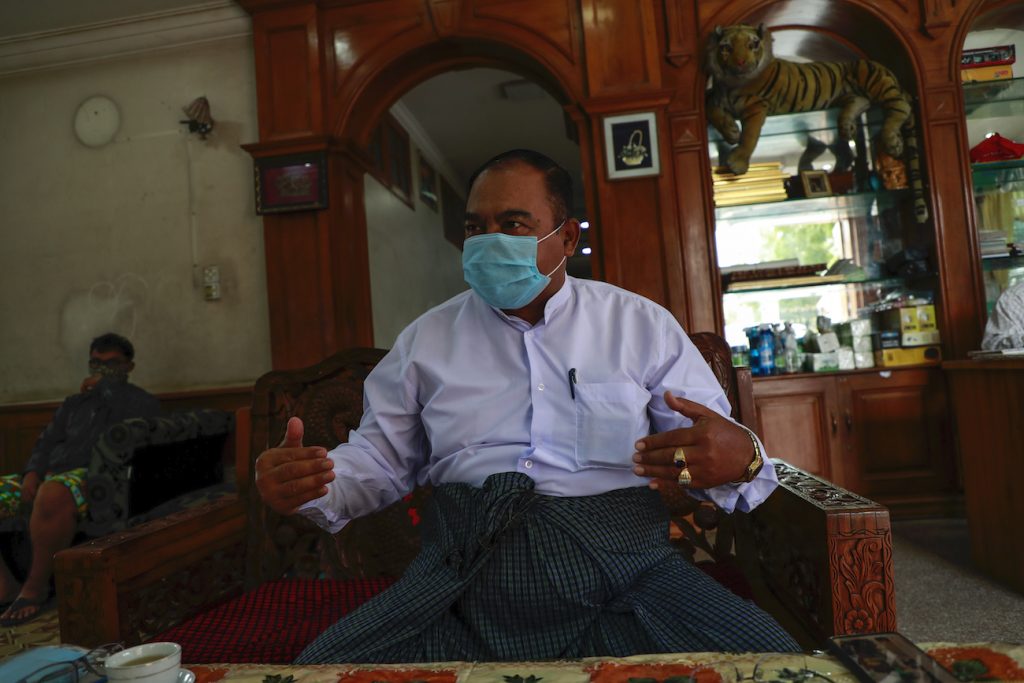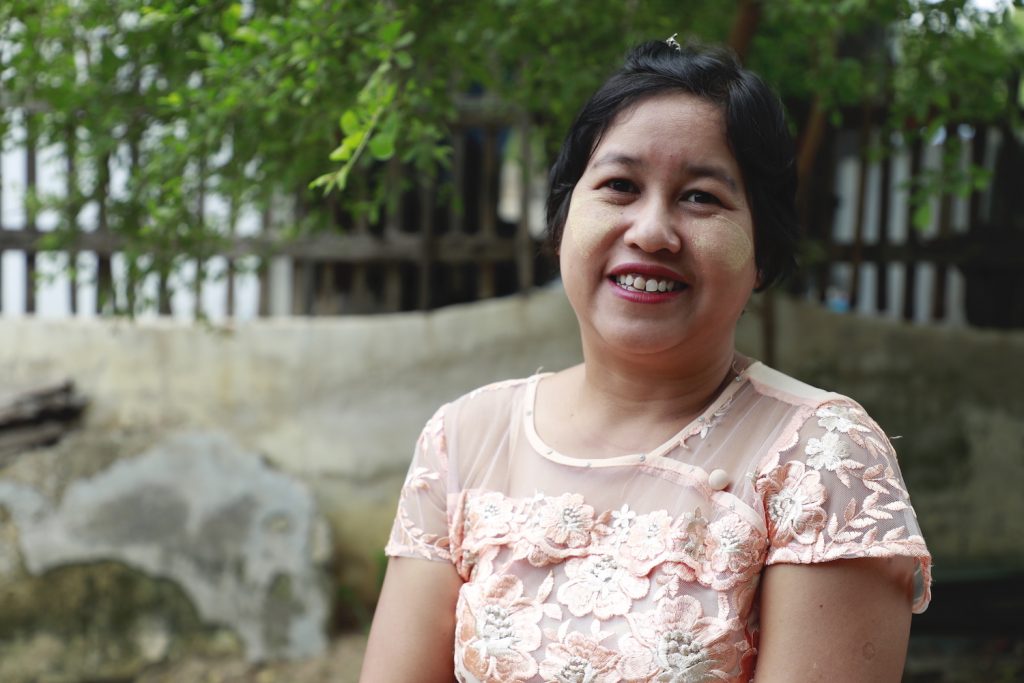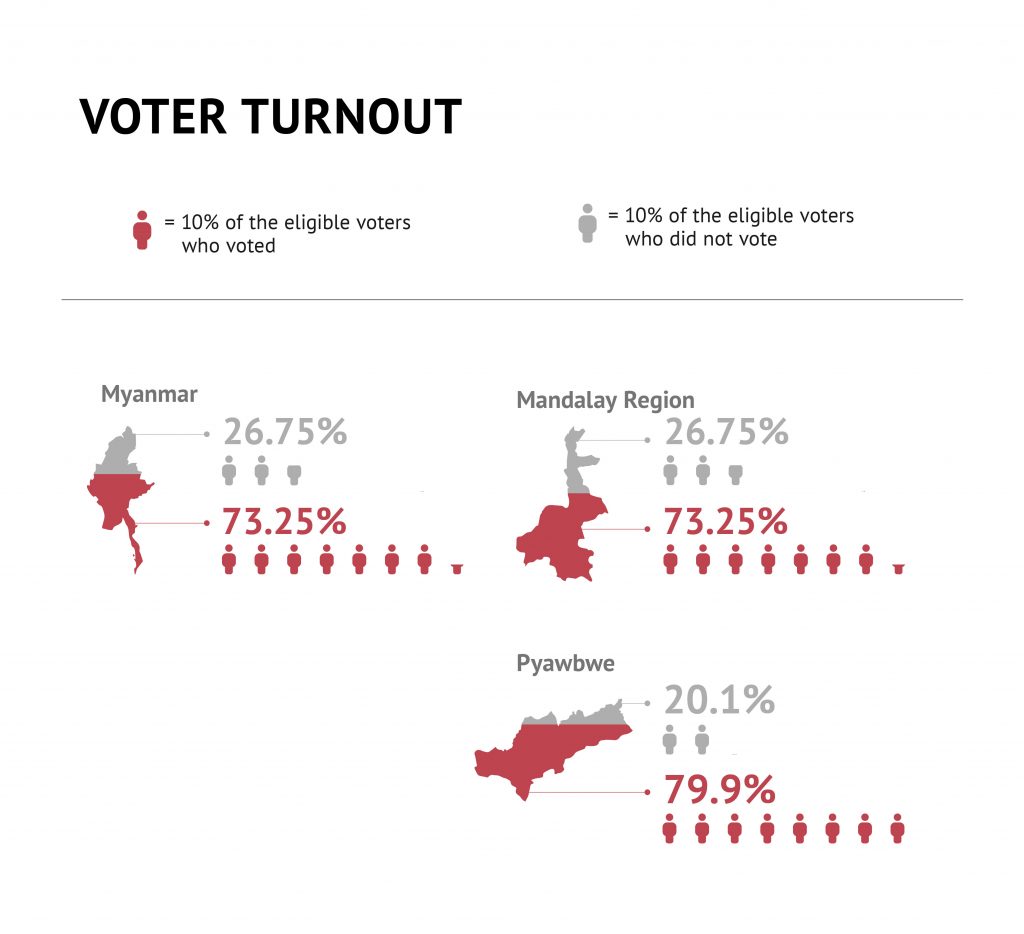After a tense race, the Union Solidarity and Development Party is refusing to accept the loss of its Mandalay Region stronghold of Pyawbwe Township, which some have attributed to a demise in Buddhist nationalism.
This is the final article about Pyawbwe in Frontier’s Tale of Five Elections series. We have followed the election in five townships across the country, capturing events and local voices through the contest and its aftermath. Scroll down for the first three articles on Pyawbwe.
By SWE LEI MON | FRONTIER
“Before our township’s election results came out, I could not sit still,” Ko Tun Min, a shopkeeper in Pyawbwe, told Frontier by phone on November 10. “Now that the National League for Democracy has won in Pyawbwe, I can go back to work.”
Tun Min, 36, campaigned for the NLD there, regularly canvassing alongside candidates in the southern Mandalay Region township. As the November 8 election neared, his wife took over the business so he could visit surrounding villages with the party.
That sort of grassroots support seems to have paid off: the NLD beat its main opposition, mostly incumbents of the military-aligned Union Solidarity and Development Party, in all four races in the township with between 55 percent and 58pc of the vote. In races for seats in the upper and lower houses of the Union parliament the USDP received just over 42pc and in the two regional hluttaw seat races received 43.6pc and 40.7pc.
The upper house, or Amyotha Hluttaw, seat for Pyawbwe also includes neighbouring Yamethin Township, another USDP stronghold stormed by the NLD on November 8.
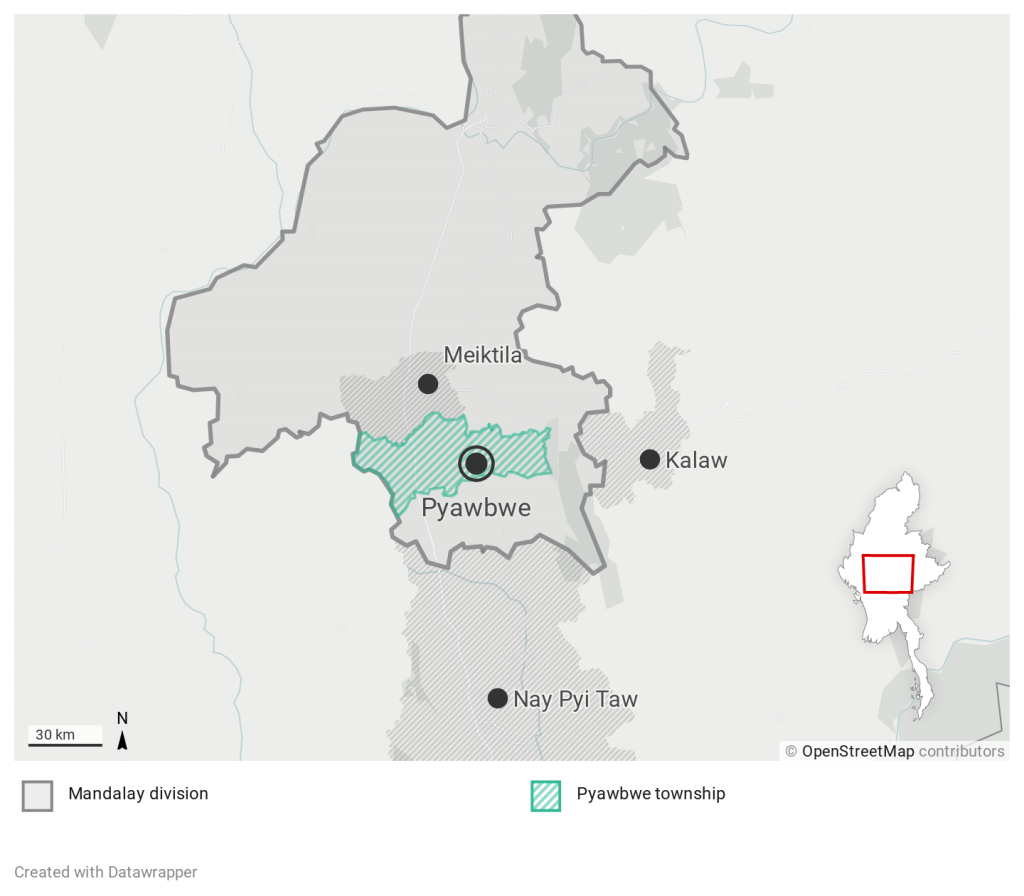
Although election officials, party members and social activists had earlier told Frontier that few locals were interested in the election, the township election sub-commission calculated that more than 80pc of Pyawbwe’s 213,823 registered voters turned out to cast their ballots. This was substantially higher than the national turnout, which the Union Election Commission has estimated at just over 70pc.
“I can make up for any money I lost [not working] anytime. But if the NLD had lost in Pyawbwe again, we’d have had to wait another five years,” he said. “It was a more than worthwhile trade-off.”
In a scene replicated in many towns across the country, thousands of NLD supporters flooded the streets of Pyawbwe in vehicles decked out with party swag on November 10 to celebrate, and a local girl performed traditional dances. Party supporters also donated food at the local market in a ritual performed at holidays and celebrations.
In 2015, the USDP won Pyawbwe’s seats with between 55pc and 58pc of the vote. The township was one of a cluster of four in southern Mandalay Region – including neighbouring Meiktila, Yamethin and Thazi townships – whose seats the USDP was able to retain amid the NLD’s landslide win that year. These USDP victories were allegedly aided by Buddhist nationalist groups, who painted the NLD as being in league with Muslims to destroy Buddhism in Myanmar. All these townships fell to the NLD on November 8.
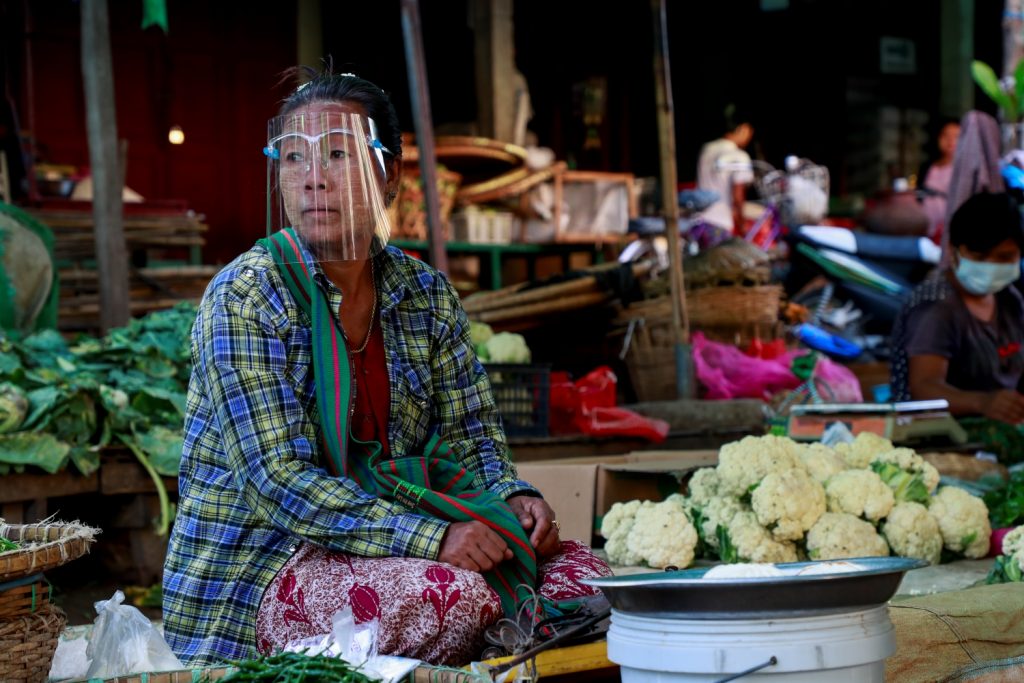
Aghast at losing its proud stronghold within Myanmar’s central Dry Zone, the military-aligned party is questioning the results of the vote and has appealed to the UEC to re-hold the election nationwide with the help of the Tatmadaw. Its candidates have refused to concede that they’ve lost.
The USDP’s U Thaung Aye, who lost his Pyithu Hluttaw seat to the NLD’s Dr Win Maung by 24,477 votes, said he doesn’t believe the results.
“We have asked the township election sub-commission for a copy of all Form 16s [the results sheets for each polling station] so we can check them ourselves,” he told Frontier on November 11. “We doubt this was people’s actual choice.”
Despite the USDP’s protestations, the township sub-commission filed the Form 19s, which contain the tabulated results for each race, with the UEC on November 10.
U Soe Myint, chair of the township sub-commission, said the sub-commission had to file the forms by law. Although the USDP candidates refused to sign these forms to signal their acceptance of the results, their signatures were not necessary for results to be certified.
“We’ve asked the UEC, through the district sub-commission, for permission to send a copy of the Form 16s to the USDP candidates. If the UEC allows it, they can have a copy,” he said.

Thaung Aye escalated his protests by holding a press conference in Pyawbwe on November 18, at which he demanded an investigation into the election in the township and showed video clips of voters testifying to what he claimed was widespread fraud. The cheating, he said, included duplications on voter lists that allowed some voters to cast their ballots twice, as well as underage voting, vote-buying and voter harassment. The outgoing MP also reiterated his party’s call for a fresh election to be held with military assistance.
His fellow failed USDP candidates have made other allegations. U Myint Soe, who competed for the regional hluttaw seat of Pyawbwe-2, told Frontier it unfair that the NLD government was able to repair roads and facilitate development projects in the surrounding villages as the election approached.
“Just 20 days before election day, the government [repaired roads and bridges] in villages and told villagers to vote for the NLD. And NLD party members donated to the monasteries,” he said. “It is misconduct. It’s called vote buying.”
While Myint Soe admitted he has no evidence of any NLD members or road workers telling villagers to vote NLD while repairs were being made, nor of the party donating to monasteries, he said he still plans to file a challenge to the result of his race with the UEC.
Aggrieved candidates and voters have 45 days from the announcement of results to dispute the outcome of any individual race in the election. On payment of a K500,000 filing fee, these challenges are heard by tribunals appointed by the UEC. After hearing evidence, these tribunals have the power to strip newly elected MPs of their seats and hand them to the runners-up in their contest.
The USDP township chapter is meanwhile seeking 100,000 signatures from local voters to back its fraud allegations, The Standard Time Daily newspaper reported on November 18.
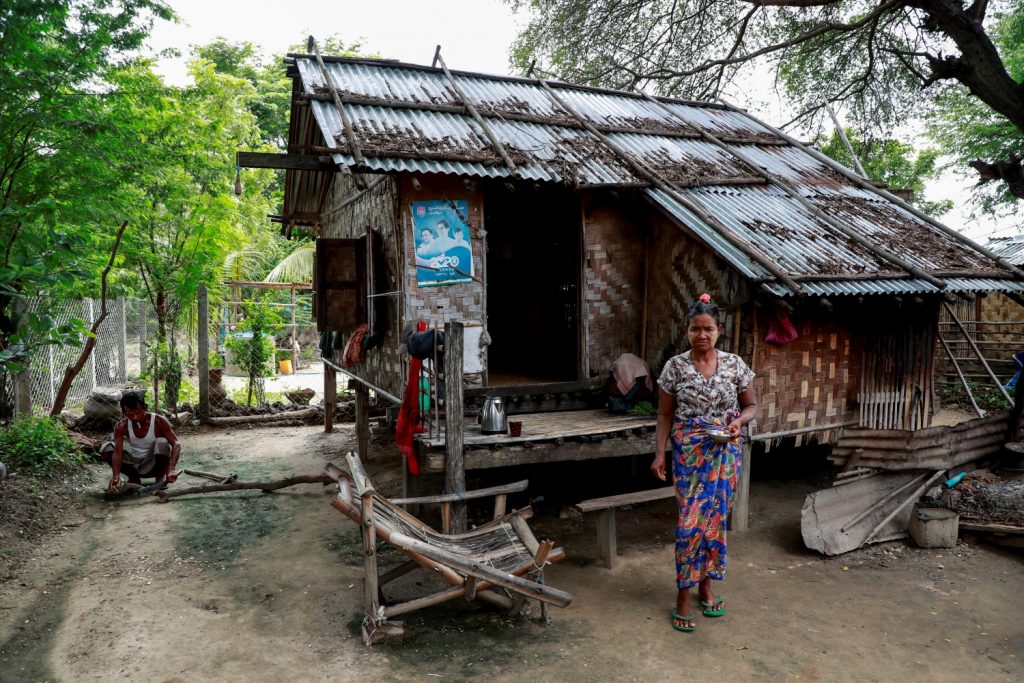
U Aye Cho, the NLD’s township chair, denied all accusations from the USDP and said his party is ready to defend itself in front of the UEC. He said contractors won tenders from the government to make repairs long before the election and were working under public contract to complete any work on schedule.
“It’s so childish. They should stop talking like children and form an actual argument. As you know, the contractors [repaired roads and bridges], not the government. The contractors had to do the work on schedule after they’d won the tender from the government – everybody knows that. What [the USDP] says does not make sense,” he said.
Myint Soe said the USDP suffered from an additional problem. “Hundreds of people who would have voted for us were not on the voter lists,” he said. “We urged voters to check voter lists but most did not because they are uneducated.”
Ward and village tract election sub-commissions displayed voter lists three times before the election – from July 25 to August 14, October 1 to 14 and again from November 2 – and told voters they were responsible for checking that their names had been included. During the first display period, the township sub-commission estimated that only about 20pc of voters checked their names.

NLD township chair Aye Cho, who in 2015 ran unsuccessfully against Myint Soe, said his party is thankful for the thousands of people who voted for the NLD, even though the NLD failed in dozens of villages that remained loyal to the USDP.
“But the margins in the villages we failed in are really small. Compared to 2015, there was a huge improvement even there,” he said.
He called the USDP’s 2015 wins an obvious outcome of people having been “brainwashed” by the Buddhist ultra-nationalist group the Association for the Protection of Race and Religion, known by its Burmese acronym Ma Ba Tha. The influence of ultra-nationalists in the township has since waned, he said, paving the way for an NLD victory.
“People in the villages are not dumb anymore; they’ve educated themselves,” he said. “Five years ago, they were brainwashed by dishonest people. Under the NLD administration, people understand that the government has ruled with love, unlike previous governments which ruled the country with guns and power.”


